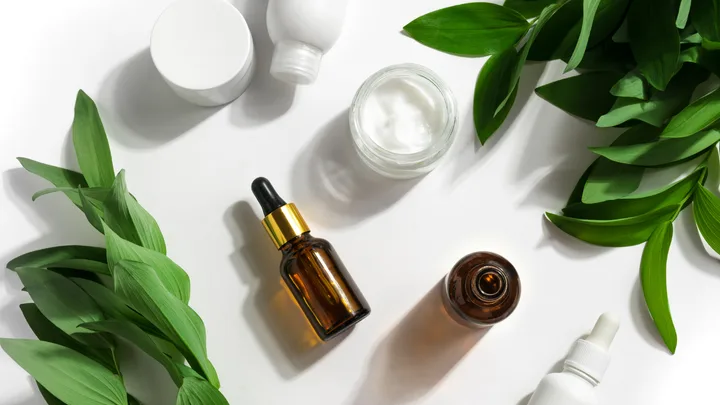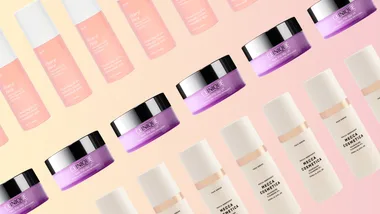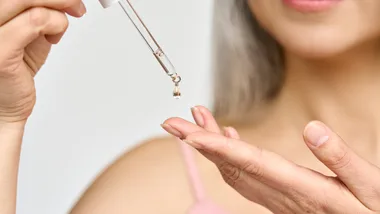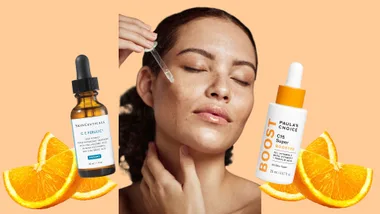We all know that vitamins are key nutrients in our lives. The right balance of vitamins in our diet will keep our body working properly as we age. From healthy eyesight to strong bones, you can count on vitamins to keep you at your healthiest.
While you’ll find Vitamins A, B and C in a plethora of beauty products at your local store, Vitamin E is often overlooked. However, the benefits of Vitamin E go far beyond the beauty cabinet.
Vitamin E is the ultimate multitasker, from combating dryness to helping to reduce the appearance of fine lines and wrinkles. A healthy amount of Vitamin E will also keep your eyes, brain and and immune system healthy.
What is Vitamin E?
Vitamin E is a fat-soluble nutrient with antioxidant properties that is stored in the liver and fatty tissue in the body. It is a vitamin that most people get adequate amounts of in their diet through foods like seeds and nuts.

What are the benefits of Vitamin E?
Antioxidants such as Vitamin E protect the body from free radicals, which are unstable atoms that can cause damage and break down surrounding cells. Free radicals are naturally produced by the body, but can be increased by lifestyle choices such as smoking, drinking and exposure to air pollution.
The most frequent outcome of free radical damage is ageing — sometimes prematurely — but can also increase risks of diabetes, cardiovascular disease and a range of autoimmune disorders.
Vitamin E combats free radicals by protecting cells from damage, as well as limiting the production of unstable atoms in certain situations.
Without enough Vitamin E, you may start to see nerve and muscle damage. Muscle weakness can be common in vitamin E deficiencies, as well as vision problems such as decreased visual acuity.
Where does Vitamin E come from?
The main source of Vitamin E is foods such as seeds, nuts and plant-based oils. Vitamin E can also be found in some fruits and vegetables, such as mango, kiwi, and spinach.
Luckily, Vitamin E is found in small amounts in a broad range of foods, so most people are not at risk of a deficiency. However, sometimes a deficiency can occur if there is an underlying health issue where the body is unable to absorb fats.
Health Direct recommends snacking on nuts or adding them to your salad for a boost of Vitamin E.

Should you include Vitamin E in your skincare routine?
Similarly to how Vitamin E works in the body, it also protects the skin by fighting free radicals. Environmental pollution and photoaging — premature ageing from the sun — are common skin concerns, but a Vitamin E-rich serum or moisturiser may assist in slowing down the process.
Vitamin E is also both a humectant and emollient. As a humectant, it works to draw moisture from the surface of the skin into the deeper cells. As an emollient, it then traps the moisture into the skin and prevents transepidermal water loss.
Try products such as SkinCeuticals C E Ferulic Serum and Malin+Goetz Vitamin E Face Moisturiser if you’re looking to incorporate Vitamin E in your routine.
While Vitamin E may assist in preventing skin damage, it is essential to use sunscreen on a daily basis to complement your skincare routine.



